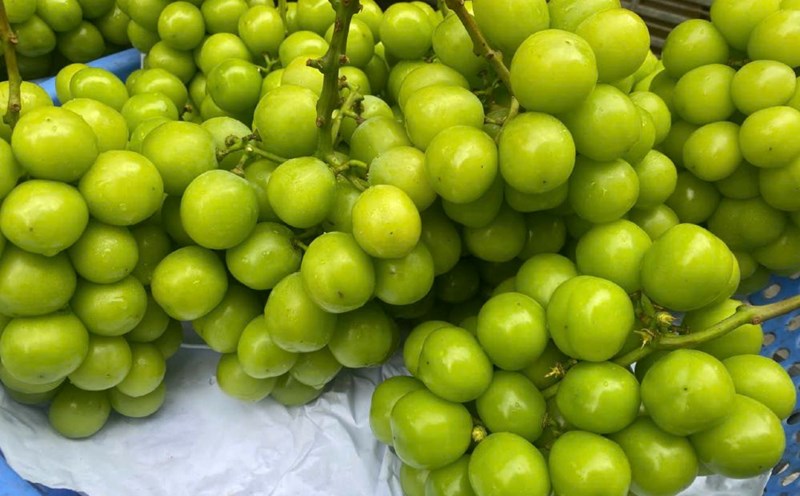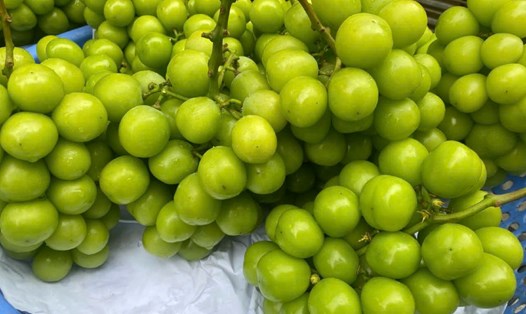Green foods from vegetables, fresh leaves to herbs help purify the kidneys, reduce the risk of stone formation and protect kidney function.
Water and lemon, a simple but effective recipe for people prone to kidney stones
To limit the recurrence of stones, drinking enough water is always at the top of precautions. The goal is to maintain a minimum urine intake of 2.5 liters per day, equivalent to about 3 liters of fluid consumption, prioritizing the choice of filtered water.

For people with calcium stones‐oxalat, fresh lemon water is considered a natural source of citrate that can increase citrate levels in the urine, an inhibitor of stone synthesis.
Some results have shown that drinking lemon water properly can significantly reduce the rate of recurrence.
Olive oil - fat considered friendly to the kidneys
Olive oil, which is rich in oleic acid and polyphenols compounds known for their anti-inflammatory and antioxidant properties, is considered a fat that is good for the diet.

When you need to control your cardiovascular system, a factor closely linked to kidney health, switching to olive oil can help detoxify the kidneys, helping reduce inflammation.
Strawberries and berries are rich in polyphenols, low in potassium (suitable for many people with kidney disease)
Among berries, strawberries are outstanding for their rich vitamin C, manganese, fiber and polyphenol content; thanks to their low potassium content, they are suitable for a variety of kidney diets. The National Kidney Foundation has listed strawberries as a kidney-friendly superfood.
This healthy sweet dish is an excellent choice when looking for kidney-healthy foods, which both help control inflammation caused by oxidation and are extremely simple in preparation.
Garlic helps maintain stable blood pressure, improves blood vessel health and indirectly protects the kidneys.
High blood pressure, often considered the number one "enemy" of the kidneys, has been shown by research studies to have the ability to slightly lower blood pressure in people with high blood pressure.
Allicin in garlic is considered an active ingredient with antioxidant and anti-inflammatory properties. This active ingredient not only protects blood vessels but also supports the kidney detoxification process by optimizing blood flow to the kidneys.
Fatty fish (almonds, mackerel, herring) are rich in omega‐3, which helps reduce signs of chronic inflammation.
Some studies and analysis have shown that omega‐3 can improve some biological markers and inhibit the progression of chronic kidney disease in the mild and moderate stage; in addition, it is also said to be significantly effective in reducing itching in patients undergoing dialysis.
When asked "What to eat to protect the kidneys?". Nutritionists recommend adding 2-3 meals of fatty fish per week.
cruciferous vegetables (broccoli, kale, cabbage) help relieve oxidative stress
Current nutritional overview suggests that sulforaphane a typical compound in cruciferous vegetables has the potential to protect the kidneys by activating the NRF2 axis, a key road in antioxidants and anti-inflammatory.
Regular consumption of cruciferous vegetables helps reduce the risk of kidney failure.
Citrus fruits (orange, tangerine, lemon): increase citrate, "needle" kidney stones
In addition to lemon juice, most citrus juices have the ability to increase citrate levels in urine - a natural "barrier" to prevent crystallization.
Although the effectiveness of the ingredients is not uniform among the types (orange, grapefruit, lemon, macadamia ...), the general trend still shows that they are beneficial for people prone to kidney stones, as long as used properly and with a low-salt, low-sugar diet.
Safety notes and quick tips to apply
In fact, there is no miraculous food that can "detoxify" or "detoxify" the kidneys. The most important thing is to drink enough water, limit salt, maintain stable blood pressure and blood sugar, exercise regularly and get enough sleep.
If you have a history of kidney stones, maintain a check-up with your doctor; limit high-dose vitamin C intake, increase citrate intake from citrus fruits.
At the same time, you should cut down on oxalate and salt, divide drinking water throughout the day, avoid concentrating large amounts in the evening.
For patients with chronic kidney disease, the diet needs to be specifically designed to "adjust potassium, phosphate and protein content" based on detailed advice from a nutritionist.
The information in the article is for reference only, not a replacement for medical diagnosis or treatment. You should talk directly to your doctor for accurate advice that is suitable for your health condition.











